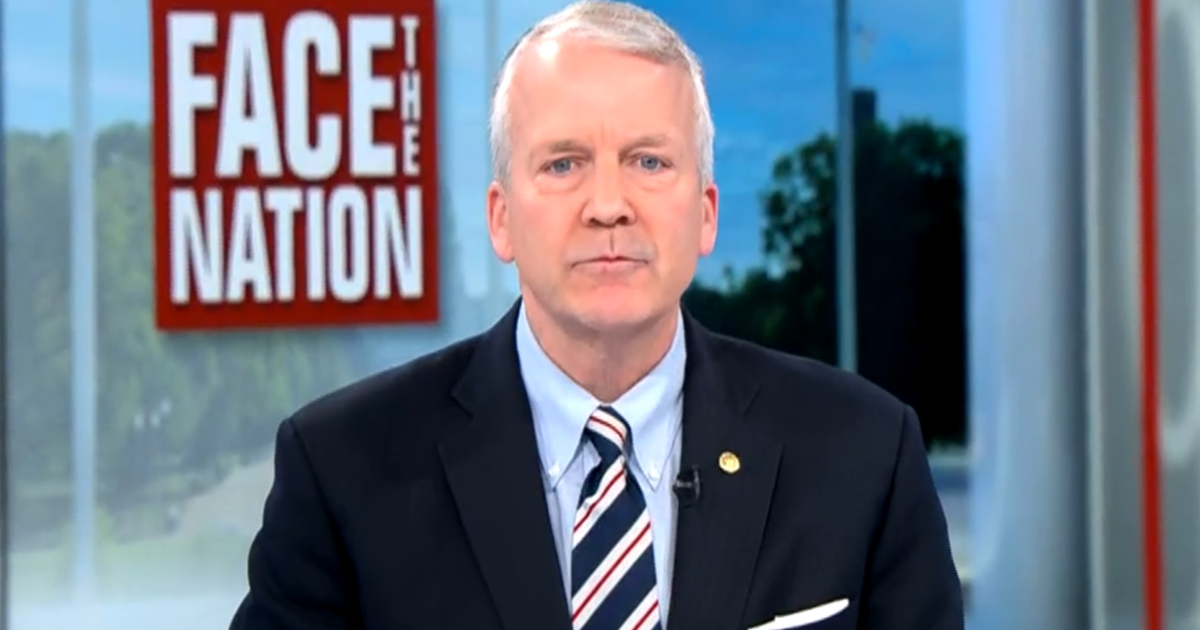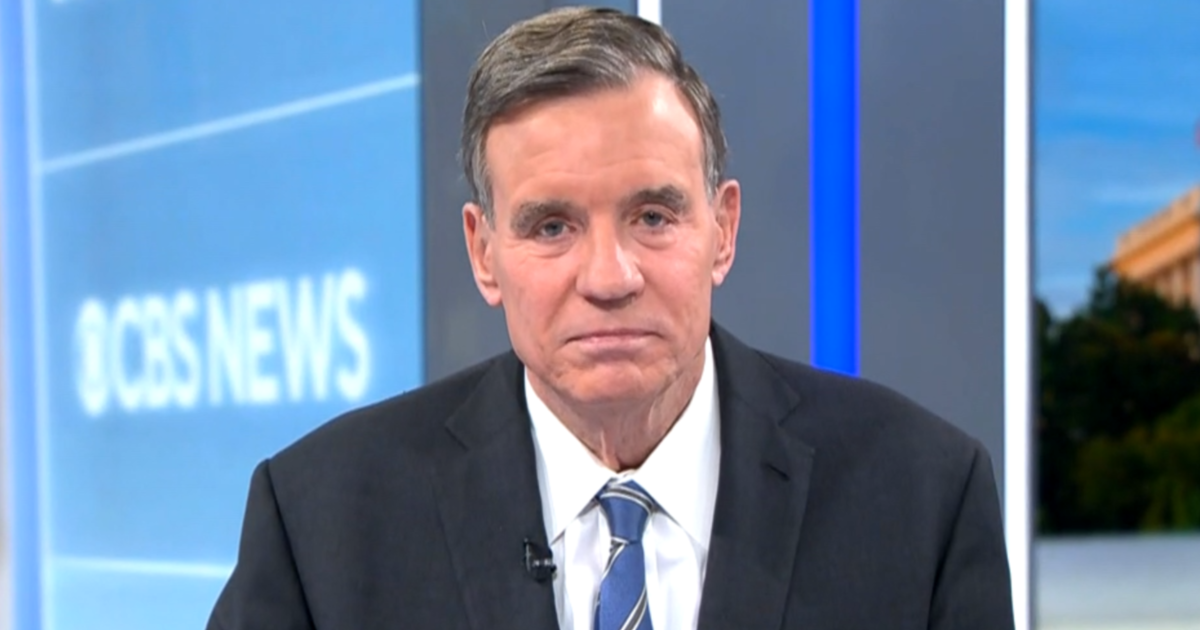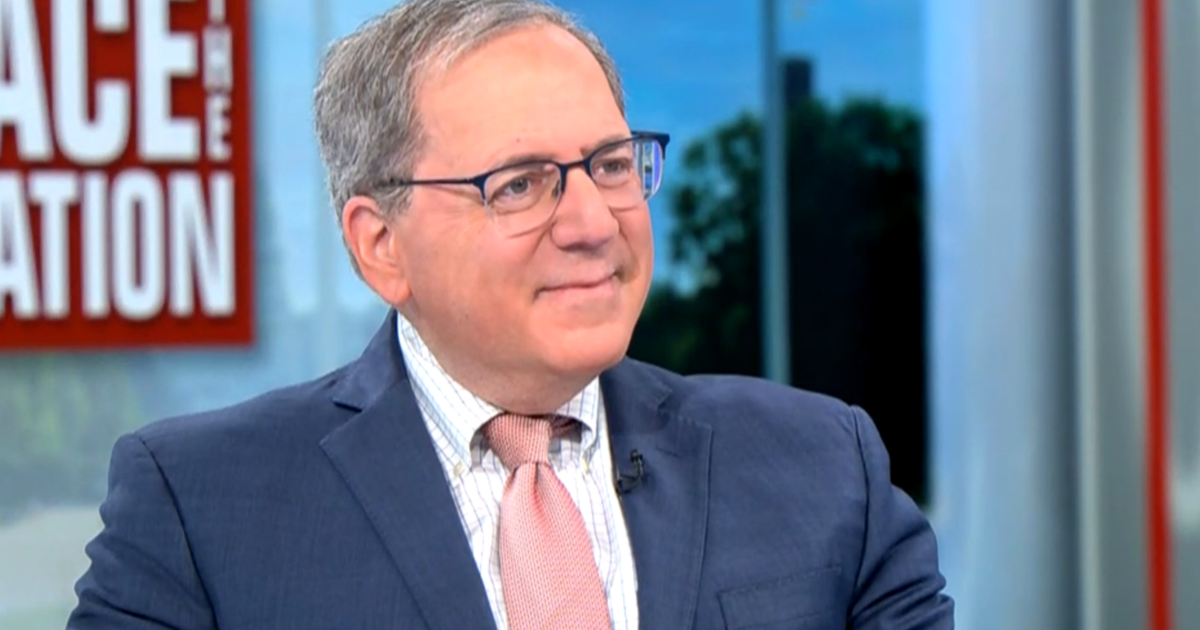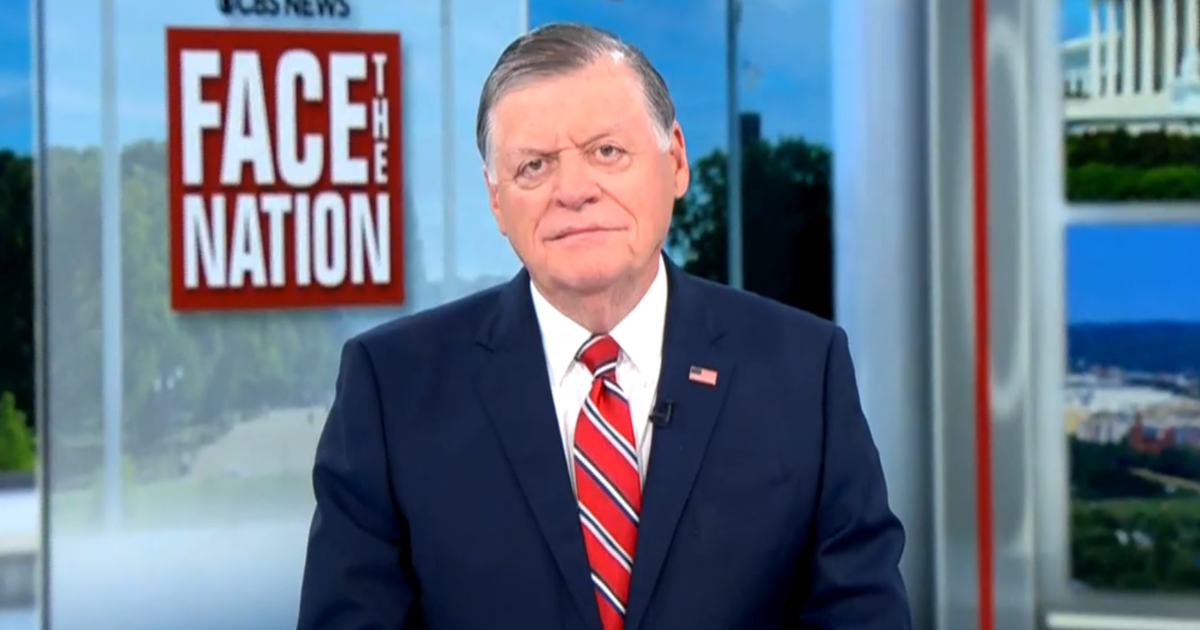Transcript: Gov. Asa Hutchinson on "Face the Nation," Feb. 25, 2018
President Trump this week called for arming and training teachers to confront would-be school shooters in the wake of the killing of 17 people at a high school in Parkland, Florida. His proposal elicited strong criticism from gun control advocates and Democratic lawmakers, who blasted the idea as unsafe and impractical.
Republican Gov. Asa Hutchinson of Arkansas is set to meet with Mr. Trump this week in Washington. He joined us to discuss efforts to make schools safer, what the role of the federal government should be and his thoughts on arming teachers.
The following is a transcript of the interview with Hutchinson that aired Sunday, Feb. 25, 2018, on "Face the Nation."
MARGARET BRENNAN: Welcome back to FACE THE NATION. I'm Margaret Brennan. Arkansas governor Asa Hutchinson served two terms in Congress and also consulted for the NRA when they pushed for armed guards at schools after the Newtown shooting. He joins us now in studio. Your state of Arkansas also experienced a school shooting many years ago. Jonesboro back in 1998. U.S. doesn't seem to have a monopoly on people with mental health issues but we seem to have this streak of school shootings. For you, does the response need to be at the federal level or the state level?
GOVERNOR HUTCHINSON: Primarily at the state level. Whenever you're looking at school safety issues when you're looking at mental health issues this is a function that governors can be uniquely engaged in. I want to focus on the school safety side and to make sure that the children when they go to school feel comfortable in their safety as well as the teachers and officials there so a lot of work has to be done there and because as your previous panel pointed out, we have different thinking in different parts of the country. This is uniquely the role of the states in determining safety. The role of the federal government, obviously, can spur the issues in terms of grant funding and - and hopefully that will be available to us. But largely the security side and the safety side will be the governors. In- in Arkansas for example, you know we have passed a law to allow some of our rural schools to have armed personnel that has enhanced training not just regular concealed weapon training but enhanced training so they can be responding to an active shooter situation. So we've taken steps in our state and will continue to do so.
MARGARET BRENNAN: So for you do you draw a distinction between arming trained staff versus arming educators in the classroom with children as the president has suggested?
GOVERNOR HUTCHINSON: Well I draw a distinction. But let me emphasize there has to be some flexibility here. I've always said that teachers should teach and others should protect. But -
MARGARET BRENNAN: Will you tell the president that when you meet with him this week?
GOVERNOR HUTCHINSON: Well I'll tell him that but also that there are some teachers who whenever they're looking at options and they've got the training and they've got the temperament and they've, they've done what's necessary and if they want to be able to have a protection and have be armed with that training I think that's a prerogative that they should have as well.
But for example in Clarksville, Arkansas one of the schools we have about 13 of them in Arkansas that they've selected staff and it's secret information as to who on their staff has been trained. But it could be a - it could be a coach. It could be a janitor. It could be a teacher. It could be an assistant principal that has gone through this enhanced training that's available for a quicker response. They couldn't afford to have school resource officer so this is a direction they chose to go. The best response is a trained police officer but they're not always available quickly in the classroom.
MARGARET BRENNAN: What kind of weapons should school personnel be carrying to match that kind of rapid fire, firearm such as an AR-15 that was used here in Florida?
GOVERNOR HUTCHINSON: Well I mean right now -
MARGARET BRENNAN: How do you arm to protect against that?
GOVERNOR HUTCHINSON: The children are trained to throw books at an intruder, anything that they have hands on. So if you have any firearm, it's obviously going to be a better protection. And so the police go in there they're able to take out with their weapons that they have on their side. You know a shooter and so a weapon can do that. It should be locally decided as to what that weapon is and of what the comfort level is with the trained staff. So those are local decisions have to be made as to what is the best utility.
MARGARET BRENNAN: Now in the, in the Parkland example, there was an armed resource officer there were first responders and the first deputy on site did not enter the building. Doesn't that undermine this argument that you're making? I mean you're putting a lot of responsibility in potentially one or a few people here to respond to extraordinary circumstances.
GOVERNOR HUTCHINSON: Well it is. It's a tragic set of circumstances there and as you look back through history we learn from each one. We learn from the Newtown, we learn from Las Vegas. We learned from what's happened in Florida and from my background at homeland security and law enforcement what is important are different layers of security. The first one is the point of entry. You've got to make sure that schools are architecturally designed so that you can have security as to people who are not authorized to be there, a single point of entry is the best. Secondly, obviously the armed police officer, the school resource officer who's had the greatest level of training should be available. But then a school in their security plan should have additional layers of security. A school resource officer might be across the campus and this is again where if a school wanted to have trained personnel that's available closer to the classroom they should be their option.
MARGARET BRENNAN: But that system didn't work in Florida.
GOVERNOR HUTCHINSON: Well does, does that mean we shouldn't have school resource officers? I don't think anybody says that. We've got to improve our systems. And so you know the FBI makes mistakes. You know whenever you're looking at the gathering of information and dealing with mental health issues there and the warning signs we can learn and we've got to do better. But it doesn't mean we should erase the protections and layered security that's in place. We've got to do better. And to me that is the right debate. How can we better give confidence better training for our staff better coordination among our officials and better tools for those in the classroom.
MARGARET BRENNAN: Governor thank you very much for your time. We'll be back with a look ahead at the devastating bombing campaign in Syria.



